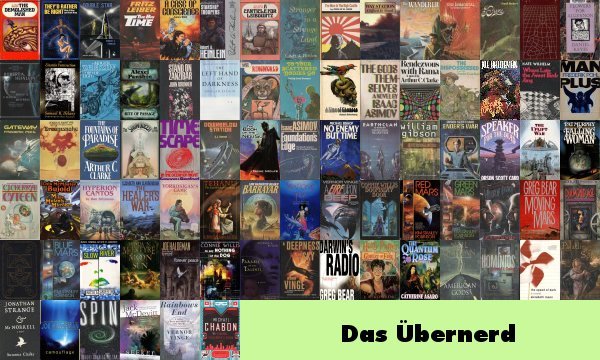 Tehanu: The Last Book of Earthsea
Tehanu: The Last Book of Earthseaby Ursula Le Guin
1990 Nebula Winner for Best Novel
I've mentioned tribute awards in the past where the voters select a famous name over the quality of the work. I hope to god that's the case here since if someone voted for Tehanu on its "merits" they need a refresher course in... well... pretty much everything. This book goes with They'd Rather Be Right and Hominids as one of the worst I've read and it has a particularly abhorrent philosophy behind it.
Tenar was the girl who started as a priestess of dark gods and escaped from the second book in the original Earthsea trilogy but after escaping that fate she married the first farmer who made a pass at her and became a housewife. Now her husband is dead, her children are all gone, and she lives alone on the farm that due to laws of inheritance belongs to her missing son. One night a badly burned gypsy girl is brought to her and as Tenar nurses the girl back to health she adopts the girl. Together they go to tend to the archmage of the island in his death where Tenar manages to make enemies of several people because she is a woman. Ged after expending his magic to close off life from death has returned to his homeland a broken man. Meanwhile the people who burned the girl and then turned her over to get healed come back to kill her because she's a girl. People turn up looking for advice but don't listen to Tenar because she's a woman.
I did not make any of that up. In fact, you can apply that sentence to pretty much everything I relate bout Tehanu in this review.
Besides being a terrible book this is an offensive book. It comes from the heart of the most militant feminist creeds that all men are evil rapists just waiting for their opportunity to destroy the purity of women who are inherently good unless corrupted by those vile men. I'll consider it nicely ironic that just yesterday I reviewed "Even the Queen" which was also a very feminist story but was infinitely better than Tehanu: Tehanu is the adolescent rantings of someone unable to put together a coherent thought for the sake of being confrontational while "Even the Queen" deflated that attitude and simultaneously built up feminism.
There is not a man in the novel who is not out to keep women down. That's not an exaggeration; at best men are patronizing but it's far more common for them to active work to harm women just because they're women. That isn't conjecture or a deconstructionist reading; Le Guin comes out and says that this is the reason that her villains are out to harm anything female. The characters discuss how all men hate and fear women while spouting modern feminist ideology.
At this point let me stop and say that it a challenge to not add "Really." after each sentence.
And that's why the philosophy of Tehanu is so terrible: it is one of hatred. Not men hating women but a thin justification of "It's okay for women to hate men because they did it first!" It's an attitude that forms the foundation of the novel and its disgusting enough that I never want to touch anything by Le Guin again. This is the Le Guin I mentioned in other reviews when I said that her writings had put me off but Tehanu actually is the worst I've ever encountered her at.
Enough philosophical objections, let's get back to the novel itself. It stinks. The plot is a mish mash of events with no strong arc. People walk off stage and come back with their problems resolved or moved on to the next stage. There is no development or changes, things just happen. Things that appear to be developing plots just vanish without warning and in one case vanishes for a hundred pages only to reappear to give the semblance of a "climax". Le Guin's prose was at best workmanlike and completely lacked the poetry that she demonstrated twenty years before.
There is nothing in this book to make me recommend it and plenty to make me say, "Pretend it doesn't exist and hope it goes away." I enjoyed the first three Earthsea books but this one is not just a post-modern departure from those themes (something which could have worked) but an angry screed. If I wanted to read poorly thought out ranting I have an Internet connection.
